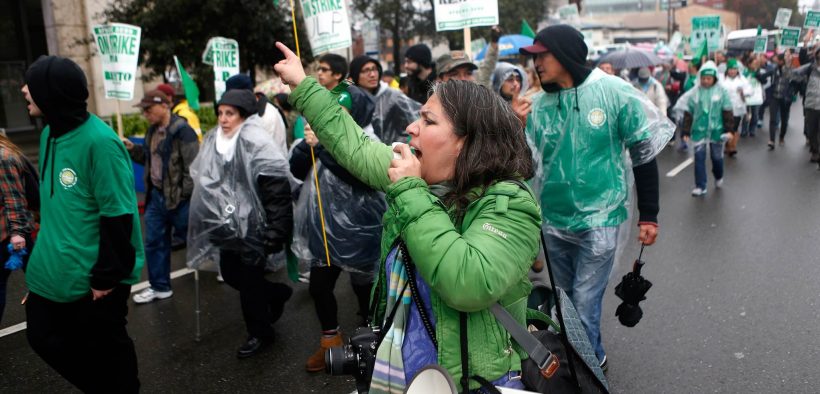Appeals Court Strikes Down Hotel Worker Rights Law

Washington’s Court of Appeal has struck down the ordinance passed by the Government determining the ballot measure that enacted the Hotel Workers safety law.
The court cited faulty ballot measures for the struck down and ruled that the subjects put to the vote can’t be many and should be clearly related to each other.
Deputy City Attorney John Schochet said that they were reviewing the court order and would determine the next course of action accordingly.
The Initiative 124 (I-124) was approved with a 77% vote in support, which requires hotels to provide workers with emergency panic buttons, keep lists of guests accused of assaulting or harassing workers and bar those guests in certain circumstances.
The I-124 law also required hotels to protect workers from chemical hazards, limit them to 5,000 square feet of cleaning in a normal day, provide them with health-care coverage or subsidies, and retain them as employees during ownership changes. However, the main motive of the law is to provide a safeguard to the hotel workers especially migrant women who are prone to sexual assault.
The law says, the assault and sexual harassment charges are not negotiable, and other provisions can be waived off.
As per the Hotel Union’s statement, they would provide the solution looking at both the sides. The voters of Seattle should not be undermined, and in the same way, the safety in the workplace should never be considered as a secondary concern.
It’s to be noted here that another plea by American Hotel and Lodging Association, the Seattle Hotel Association, and the Washington Hospitality Association got rejected the last year by a King County judge.
As per the Union, the problem with the law was not only the ballot’s size but also the absurd clauses for hotels. They said the city never has the authority over the hotels. And as per the terms, the hotel business would be impacted. They even objected to the blacklisting policy.
The court of Appeals had a three-judge bench which pointed out that the ballot put to the city voters should have one subject, there should be no ambiguity in the ballot and voters should not be confused while voting.
The State may move to the higher court, but nothing as of now has been cleared.
The Seattle Hotel Association was content with the ruling by the Court of Appeal.
The Hotel Association said that the hotels at Seattle are committed to the safety of the guests and the visitors as well as the workers. Their aim was to provide a safe and healthy environment for both parties. The I-124 provided the opportunities to the workers; it threatened the privacy and rights of the customers. As per the Hotel association’s statement, they would want to work on this mutually.
Whatever might be the motive of the ballot, it has surely provided better promises to the hotel workers. So, the state should now look to pass the ballots separately—one having provisions for the guests and another for the employees. In this way, there would be no manipulation in the democratic weapon of voting.
















